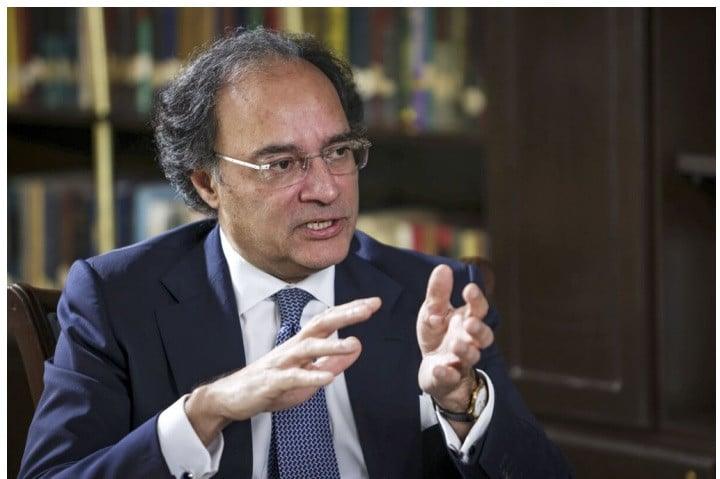Islamabad:
The Minister of Finance, Muhammad Aurengzeb, promised good news from the International Monetary Fund (IMF) soon, emphasizing that negotiations with the global lender were in the final stages and did not see an impediment to a successful conclusion of conversations.
Talking to the media after addressing a ceremony on the occasion of ‘World Glaciers Day’, organized by the Ministry of Climate Change at the headquarters of the National Disaster Management Authority (NDMA), the minister claimed significant progress in conversations with the IMF on weather funds.
“The negotiations with the IMF are ongoing and there is no important obstacle in the success of these conversations,” Aurangzeb said in an informal conversation with journalists. “The conversations with the IMF will be completed soon. Pakistan is achieving the objectives of the economic discipline and we will soon receive good news from the IMF,” he added.
He said the country needed the support of its development partners and the United Nations to address climate change. In this regard, he described the conversations with the IMF in the last two “positive” weeks and described a promising step to obtain vital funds.
Previously, the minister told the ceremony that the country suffered a lot due to the devastating floods of 2022. He added that the government received promises of $ 10 billion in help for flood damage rehabilitation projects, but the aid could not be used due to the lack of viable projects.
“Climate change is an important issue for Pakistan, but controlling climate change is the real challenge for us. We could not prepare viable projects, so we could not use help. We will have to create viable projects for climate financing,” he told the audience.
Speaking about the environment, he said that Pakistan was home to more than 3,000 glacial lakes of which 33 were “extremely dangerous.” He warned that more than 7 million people were at risk due to the possible floods of the Glacial Lake (Glof).
“There is an urgent need for a comprehensive strategy to address climatic risks,” he said, adding that there was a national climate strategy framework, but its implementation had been a great challenge. “There is a ‘protection and resilience strategy of glaciers’ for public review.”
He said that “climate change” and “growing population” were the two main threats to the country. “Low rain in the winter is an indication of a great threat,” he said, adding that good progress was achieved in the country’s association conversations with the World Bank, but “we have to bring useful projects for the climate.”
At present, he said, environmental degradation and large population were great existential threats to the country’s economy. “The government will provide all financial and technical resources so that the economy can advance,” he said.
“The government is preparing the 10 -year economic reform program with the support of the World Bank, where environmental challenges will obtain a more significant place. The World Bank will provide us with full support in this regard,” he added.
(With application entry)




